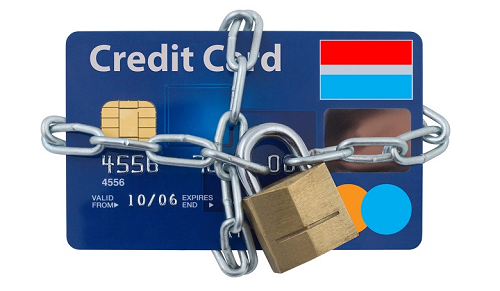Are you one of those individuals who are always confused about the difference between the Credit Lock and Credit Freeze?
This is the right place to search for the answer!
In case if you are stressed over credit thefts, you can freeze or lock your credit reports at the credit authorities in India. The expressions “credit freeze” and “credit lock” are regularly utilized conversely, as the two of them safeguard your credit reports from an information break or data fraud, along these lines disposing of the chance of a fraudster opening another credit account in your name. In other words, a credit freeze and a credit lock are comparative services that keep expected loan specialists from getting the record without your permission.
So how would you conclude whether to freeze or lock? It truly relies upon your own inclination. Although the two choices are comparable as the two of them limit access to your credit report, the significant contrasts between a credit freeze and credit lock are:
- A credit lock is simpler to open than a credit freeze.
- Credit freezes are directed by law, and
- While credit lock administrations are now and then free, you may need to pay a month to month charge. (Government law necessitates that the credit detailing agencies offer credit sticks to everybody for free.)
While a credit lock may appear to be a sensible choice, a credit freeze is a superior decision from a legitimate perspective and will no doubt be more affordable.
To understand the difference more clearly, let us know more about the terms and how they work.
What is a Credit Freeze?

A credit freeze is just that – It freezes your credit, so no new records can be opened in your name. A credit freeze keeps a moneylender or lender from getting your history. In case that a character cheat attempts to utilize your Social Security number and other individual data to apply for a home loan, Visa, vehicle advance, or other types of credit, the bank would turn down the application since it can’t survey your FICO assessment. (A credit freeze won’t forestall abuse of your present records, however.)
How to freeze your credit file?
At the point when you place a security freeze on your report, you will be given a personal identification number (PIN) or secret key. Before banks can access your report, you should lift the freeze utilizing the PIN given to you. There is no fee to freeze and unfreeze your record.
Remember that security freezes should be started at each of the three credit reporting firms – Experian, Equifax and TransUnion. Commonly, a credit freeze lasts (except if you thaw your record), however in a couple of states it terminates in seven years.
How to thaw your credit file?
When your credit document is under a credit freeze, creditors may have the option to get to your record on the off chance that you thaw it for a particular timeframe or for a particular organization or individual. To thaw (and later refreeze) your credit document, it needs to utilize a Personal Identification Number (PIN). Under government law, the agency must eliminate the security freeze not later than:
In the case where you make the request by complementary phone or secure electronic means, one hour subsequent to accepting the request for removal, or
In the case where you make the request via mail, three business days after getting the request.
What is Credit Lock?

A credit lock works in a similar way as credit freeze as far as restricting access to your report is concerned. Here, creditors can’t get access to your credit file. Once more, to secure your credit you have to lock your document with each of the three credit agencies: Equifax, Experian, and TransUnion. The significant contrasts between a credit freeze and credit lock are the methods in which you may lock and open your credit record, and the costs involved.
How to Unlock Your Credit Online or Through an Application?
With a credit lock, you may activate or deactivate the lock on the web or through a smartphone application on your cell phone, regularly with only a username and secret key. With a credit freeze, you need to go on the web, mail your solicitation, or call the credit agency—and utilize your PIN—to start, lift, or eliminate a freeze.
Credit locks, at times, cost a month to month charge, however not generally. Starting in July 2019, Experian charges $4.99 for your first month and $24.99 for each extra month. This can get costly quickly.
Why is a Credit Freeze Typically a Better Choice?
The credit authorities will, in general, acknowledge locks as quicker and more easy to understand than credit freezes, however, by and large, putting a stop on your credit at all three organizations is simply the most ideal approach to ensure. Here’s the reason.
Credit freezes are directed by state law. Credit locks, then again, are represented by an agreement among you and the credit department. Agreements frequently have terms that aren’t good for the shopper, like arbitration clauses which prevent you from taking part in a lawsuit. Likewise, if a criminal deceitfully gets your credit record while a freeze is set up, you’ll have better assurance against obligation under state law. At last, state law will give you more grounded assurances than an agreement that the credit authority drafted. Likewise, as of September 2018, government law controls acknowledge freezes too.
Credit freezes may be more affordable. Freezing and lifting a freeze is free, which is clearly less expensive than paying a month to month charge for a credit lock.
How to Protect Yourself from Credit Fraud?
Another alternative for safeguarding your credit information from fake use is a fraud alert. Yet again, a credit freeze is a superior method to secure yourself credit misrepresentation. (You can have both a freeze and alarm set up simultaneously.)

Whatever data fraud insurance strategy you pick is completely up to you, however regardless of what you pick, you ought to likewise consistently get duplicates of your credit report from each of the credit agencies. Under government law, you may get a free duplicate of your credit report at regular intervals from every one of the three significant credit reporting agencies.
Audit the reports for all potential indications of difficulty, similar to accounts you didn’t open, requests you didn’t start, and defaults and misconducts you didn’t cause. At that point, ask the credit detailing offices to erase data identified with wholesale fraud from your credit report.
Conclusion
To sum it all up, it’s always a better option to be aware of all the terms related to credit, if you are actively involved in taking credit or loans. The above-mentioned details about Credit Freeze and Credit Lock will surely make you understand what exactly the terms are! For more details about credit score, how to improve credit score and for any other financial assistance, you can get in touch with the professionals of Credit Triangle!






